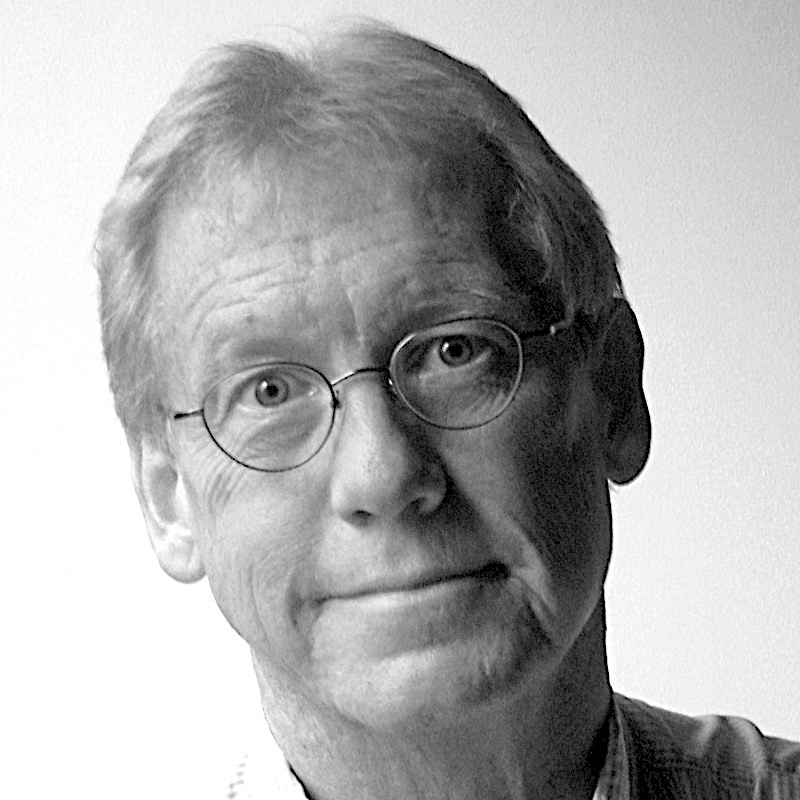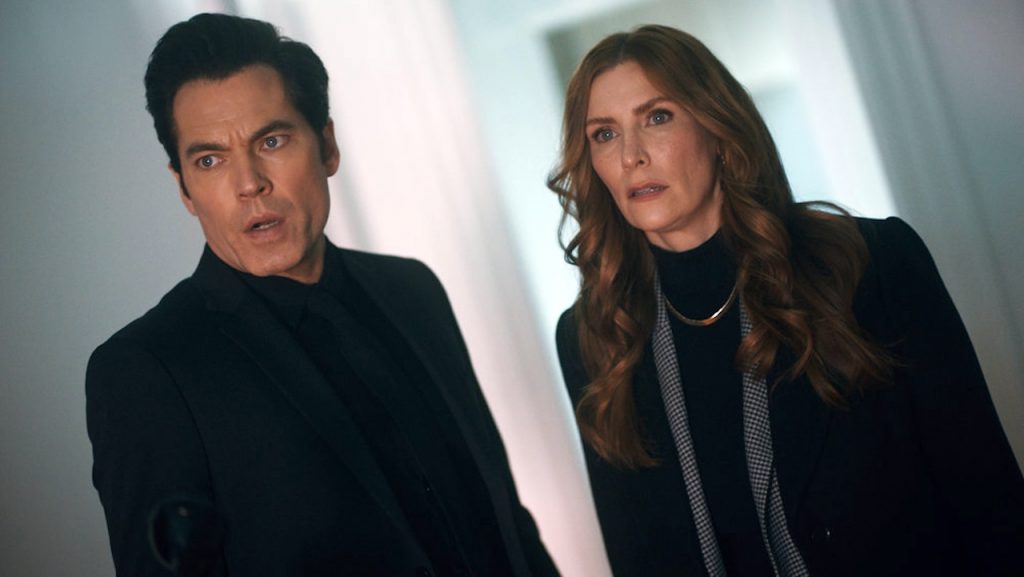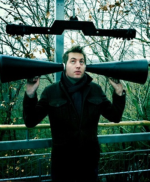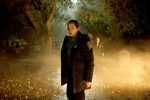“Human Stories Behind a Haunting” ‘Surreal Estate’ Creator George Olson on Writing for Television

“I spent most of my career in advertising,” says George Olson. “I had always wanted to write for movies and television, but I live in Colorado, not exactly the screenwriting mecca of North America, so I started reading scripts, screenplays, and just started writing.”
As a former copywriter and creative director, Olson his start really came from “writing bad screenplays.” He adds, “That’s the only way to eventually write good screenplays.” He read all of the big books on the subject and many interviews from Creative Screenwriting as a foundation.
“I started entering some competitions and I won a couple of screenwriting contests. There was just enough encouragement. It’s like playing golf. You can hit terrible shots the whole day, then hit one beautiful shot, and then you love the game.”
Thanks to these early wins, Olson was on a path to meet producers and pitch ideas. He eventually spent some time developing a project with Barry Sonnenfield (Men in Black) and John Turturro (The Big Lebowski). “For an advertising writer in Colorado, it was fairly heady stuff.”

George Olson
One particular idea gained some traction, but Olson’s reps told him to transition it to a television idea. “I read every pilot I could get my hands on, started writing television, and found that I loved it.” The screenwriter is best known for creating the series, Surreal Estate, a series about real estate agents who deal with haunted houses.
Writing for Television
“I had a note on my screenplays that ‘this is a little talky,’ which you don’t really get in television. It felt much more character driven and dialogue driven, where screenplays feel set piece oriented.” Soon after, he sold a few pitches and pilots. “If not now, when? So I left advertising to write full-time.”
The biggest difference between television and film, character wise, is the “sustainability of the idea.” Olson continues, “What does episode 100 look like? If you can’t imagine episode 100, then maybe it’s a movie. That was the hardest thing for me: making sure I wasn’t making a movie into a TV show.”
“With a good television pilot, the ending is not an ending, but a beginning. It’s making sure that somebody reads that last page and doesn’t say, ‘Wow, what a satisfying ending,’ but instead asks, ‘Now what? Where do these guys go from here?’”
In Surreal Estate, Schitt’s Creek stars Tim Rozon and Sarah Levy lead the real estate team of ghost experts. “The fun thing about Surreal Estate is that it takes a job that is pretty mundane and straightforward, which felt ripe for parody, but mashing that up with the mystery and emotional and the aferial quality of haunted houses and ghosts, that seemed like a fun juxtaposition.”
In the pilot, Luke (Tim Rozon) talks with a woman who says she doesn’t believe in ghosts. He responds, “Neither do I. I just work with them.” In many ways, this is the essence of the show and how the creator found a way to mashup the two ideas into one show.
“That line happened early in the episode, just a scene or two in. It really did guide us. It established our tone. Even though the people at the Roman Agency take these things seriously, I thought it was interesting to have the agents treat ghosts the way they would radon in a basement or shag carpeting: barriers to a sale.”
As an evergreen reminder of this truth, Olson has a sign up in his office that reads, “We are a show about real estate.” This makes sure they never sway too far from the original idea. “If we do that, we’re just another show about helping those tortured souls. We want to help them, but that’s a means to an end. The end is the sale, the signature on the dotted line.”
Researching the Paranormal
Despite the focus being on real estate, the writers do a ton of research about the paranormal. “I do a ton of research. It’s a great way not to write,” jokes Olson. “So many things are more interesting when they’re grounded in truth. There’s so much good folklore out there.”
In season 1, there’s a bottle episode where a possessive demon is hopping from one character to the next. “As they’re talking about this demon, they’re looking at shapeshifters from different cultures who do what this one does. Google is heavily used in our writers’ room. A lot of our demons or ghosts are based in history.”
“If I can find one little fact that is interesting, a lot of times you can build a story about it. I spend a lot of time doing research and making notes, because you never know when you’re going to find something that takes a dull story and brings it into a really exciting direction.”

Luke Roman (Tim Rozon) & Susan Ireland (Sarah Levy) Photo by Blue Ice Pictures/ SYFY
Like many ensemble shows, the writers first started by thinking about what a real life ghost-whispering real estate team might need. “They’d need a research guy, a tech guy, agents… it was going down those different roads that we created characters who interacted with the ghost of the day. That’s the formula we used.”
With this formula, they could have ghostly figures who have their problems solved in an episode and also have main characters who grow slowly across full seasons. “We can show more about their inner lives without being a straight procedural. It’s a strong commitment to characters, as they solve these problems, and look at human stories behind a haunting.”
Getting Noticed Outside LA
Olson’s break-in story focuses on applying to competitions to get noticed. “Contests really worked for me. A lot of people do not believe in them, but a lot of people don’t believe in ghosts either. Contests they believe in even less,” he jokes. “But if you’re in Colorado, how do you get read? How do you get a manager to read your stuff and say, ‘Hey, this is really good.’” One of his early scripts was a biopic about Nikola Tesla that won an early competition.
“It was slipped to an agent who repped Barry Sonnenfield at the time. He knew Barry loved Tesla, so we met, got together and developed that for a while. Another one, a judge who was a mentor to a manager, he passed me along to a manager and that firm is still my management firm today. That worked for me. I know it doesn’t work for everyone, but it worked for me.”
“The greatest piece of advice I can give writers is, ‘Don’t just have one script.’ When you have one script, put it aside. Even if it’s wonderful, put it aside and work on the next one. A body of work shows something to reps. They don’t want somebody who has one script.”
He concludes, “They want somebody who is going to create a body of work and has a voice that is going to come through in each execution. That’s a professional. That’s who people want to work with. There should be a thread of quality, distinctiveness, and talent.”
This interview has been condensed. Listen to the full audio version here.
Join the Discussion!
Related Articles
Browse our Videos for Sale
[woocommerce_products_carousel_all_in_one template="compact.css" all_items="88" show_only="id" products="" ordering="random" categories="115" tags="" show_title="false" show_description="false" allow_shortcodes="false" show_price="false" show_category="false" show_tags="false" show_add_to_cart_button="false" show_more_button="false" show_more_items_button="false" show_featured_image="true" image_source="thumbnail" image_height="100" image_width="100" items_to_show_mobiles="3" items_to_show_tablets="6" items_to_show="6" slide_by="1" margin="0" loop="true" stop_on_hover="true" auto_play="true" auto_play_timeout="1200" auto_play_speed="1600" nav="false" nav_speed="800" dots="false" dots_speed="800" lazy_load="false" mouse_drag="true" mouse_wheel="true" touch_drag="true" easing="linear" auto_height="true"]










You must be logged in to post a comment Login